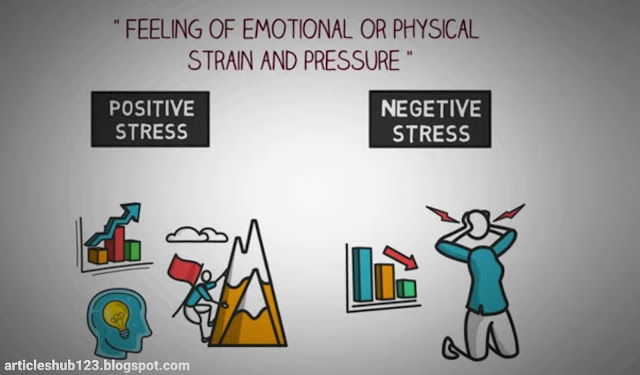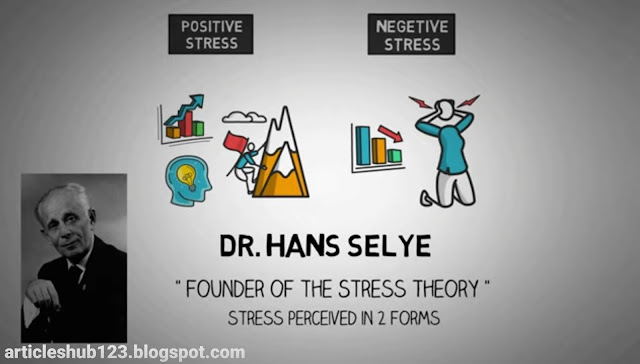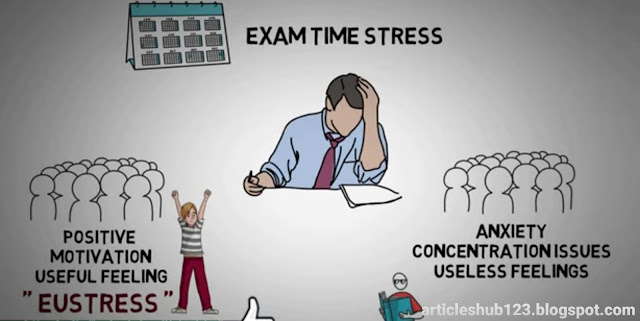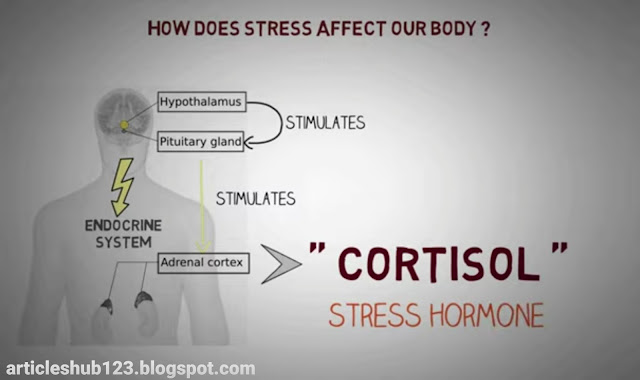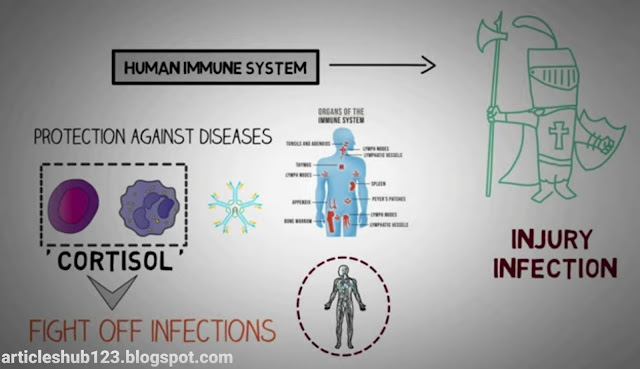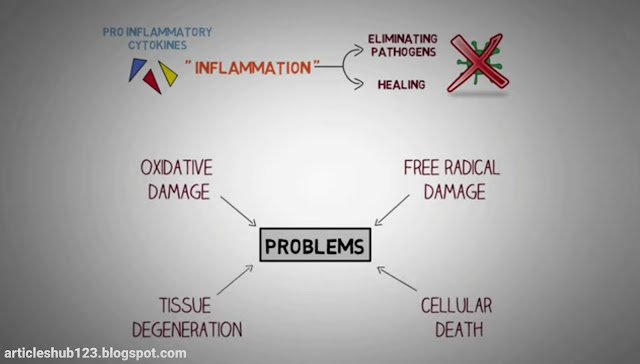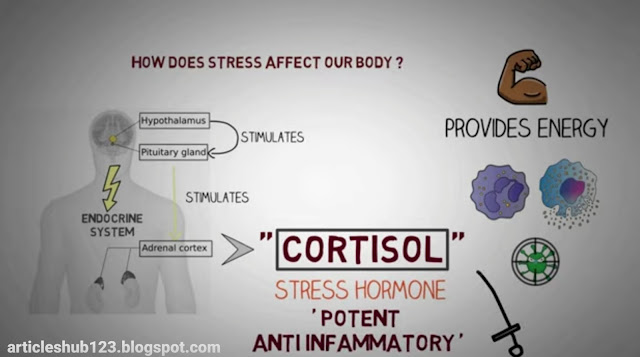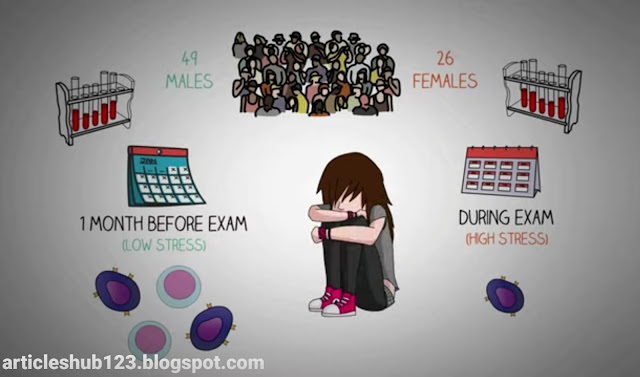HOW STRESS AFFECTS YOUR IMMUNITY AND HOW IT MAKES YOU SICK.
□□□□□□□□□□□□□□□□□□□□□□□□□□□□□□□□□□□
What is stress...? according to psychology
stress is a feeling of emotional or physical strain and pressure stress, can be positive or negative small amount of positive stress is beneficial and healthy it helps in improving performance motivation and adaptation negative stress is a big box full of problems it decreases performance demotivates individual and leads to mental and physical problems.
Dr Hans lai founder of the stress theory according to him stress can be perceived by a person in two forms which he called as negative stress distress .
and the positive stress known as you stress the simplest way to understand, what you stress and distress mean is by looking back at the exam times just a few days before the exam you feel stressed and under pressure some of us are able to use that feeling positively and it becomes a motivation to study harder and perform better and that feeling becomes ultimately useful this is you stress while the rest of us respond very poorly to the situation and feel anxious you feel all those emotions in your head you feel dizzy nauseated even gets sick during this period you may have studied well for the exams but the pressure and stress gets on your nerves and you perform very less than your potential this is distress .
Now that we have understood what the term stress means let's look at what happens when you are stressed during the times of stress the hypothalamus a collection of nuclei that connects the brain and the endocrine system signals a pituitary gland to produce a hormone which in turn signals adrenal glands located above the kidneys to increase the production of cortisol this is extremely useful in short-term scenarios that is why cortisol is known as the stress hormone .
In humans one of the systems that responds to challenging circumstances or stress is the immune system broadly the immune system comprises of cells proteins organs and tissues that work together to provide protection against bodily diseases during acute stress that lasts for a matter of minutes or ours the immune system mobilizes the cells which prepare the body for injury or infection these immune cells under the influence of cortisol fight off infections and the body manages the stressful scenario .
In this process pro-inflammatory cytokines are also produced which are necessary for eliminating pathogens and initiating healing however this process of inflammation has its own problems as it leads to oxidative damage free radical damage cellular deaths aging and systemic tissue degeneration to prevent this our body secretes cortisol.
It provides the energy that is required to
deal with the challenge it's also a potent anti-inflammatory that prevents damage to the body's own cells.
Kaiko Glasser and scientists performed an experiment on medical students to observe the effects of exam time stress on immunity these medical students were divided into two groups out of which 49 were males and 26 were females the team of scientists took
blood samples from both the groups before the exam which was a relatively
low stress time and after the exam which
was a high stress time the activity of lymphocytes was checked in the blood
samples of both the groups before and
after the exam and the researchers found
that immune responses were weak in the
students after the exam and also influence who are experiencing stressful life events and psychiatric symptoms such as depression or anxiety.
What does this immune system dysfunction do to the stress lead to your tendency and frequency of falling sick increases exponentially also if you are already having an illness your symptoms might get progressively severe sustained cortisol activity during stress is associated with an increase in gastrointestinal symptoms which explains the stomachaches and frequent visits to the washrooms high level of information promoting cytokines resulting from stress have recently been implicated in the etiology of psychiatric disorders chronic stress has been shown to enhance risk for developing autoimmune diseases because of constant immune system dysfunction also there is bone and muscle breakdown fatigue depression pain and memory impairments all of us are aware of the global pandemic that we are facing in this world today and the only thing that can protect us from this global pandemic is our own immunity .


